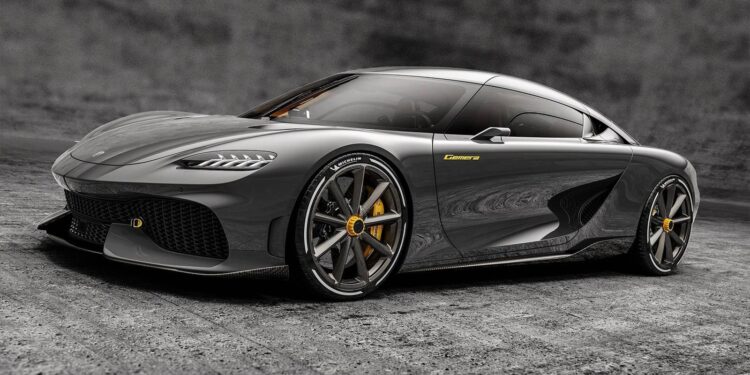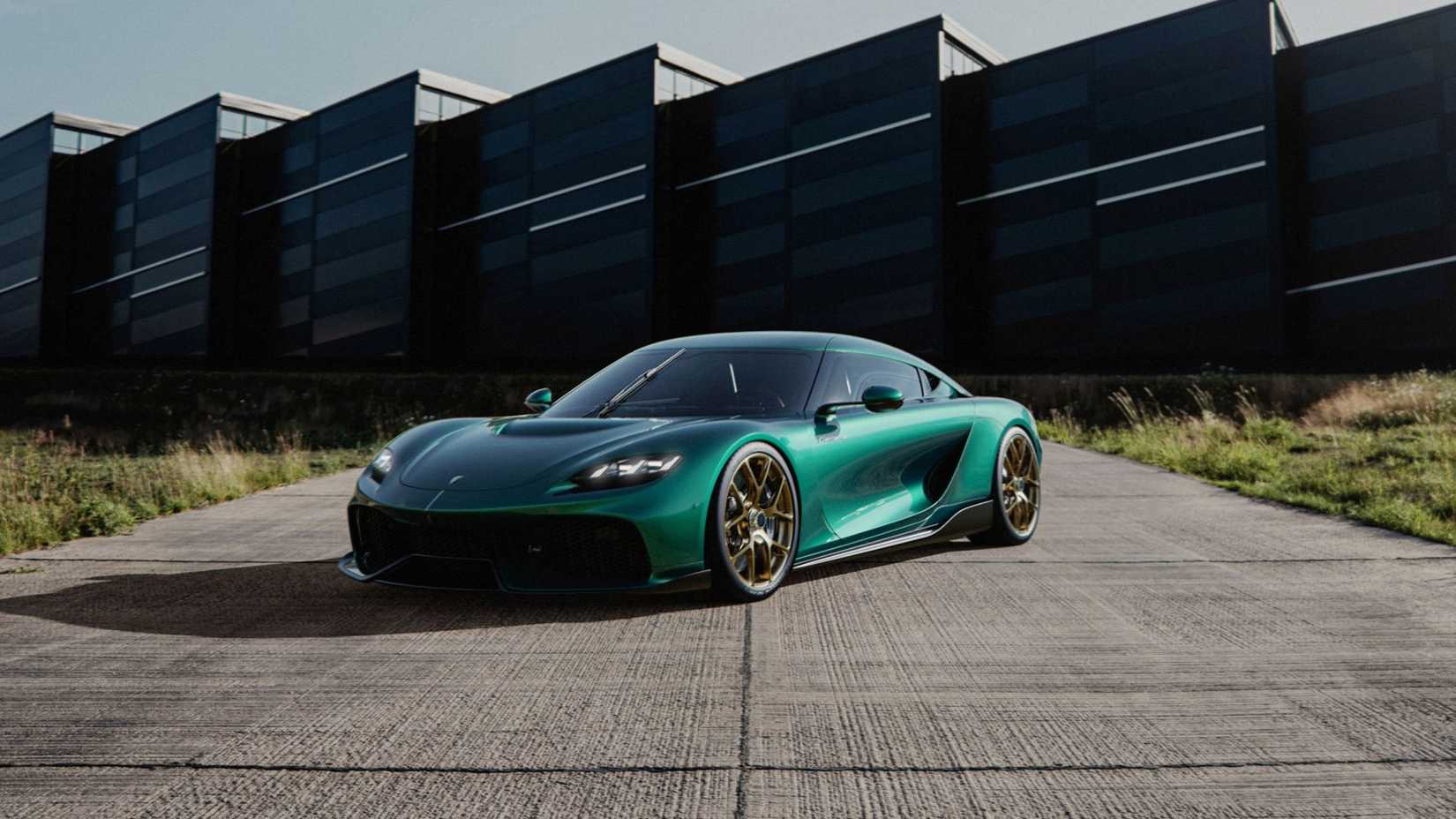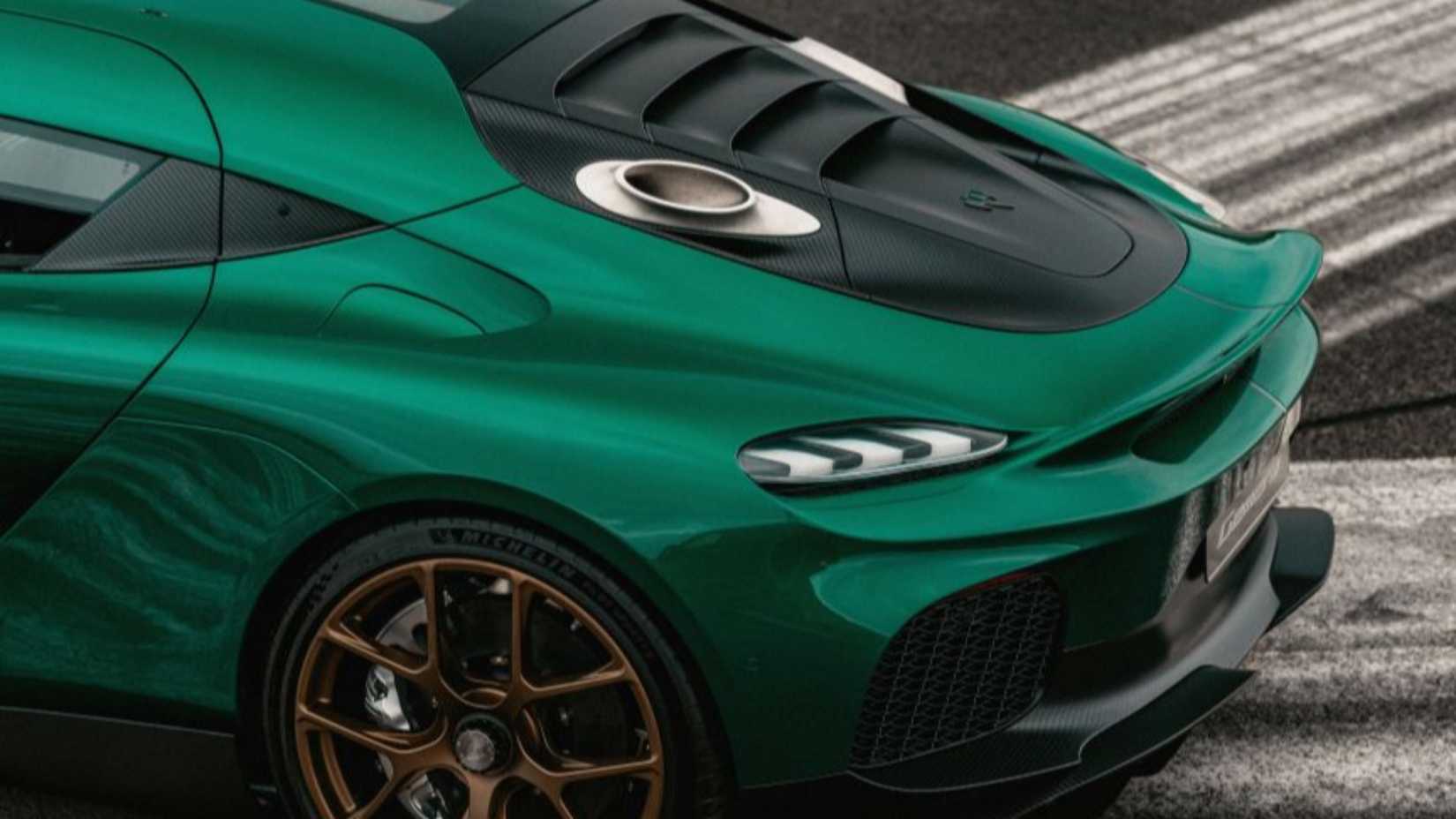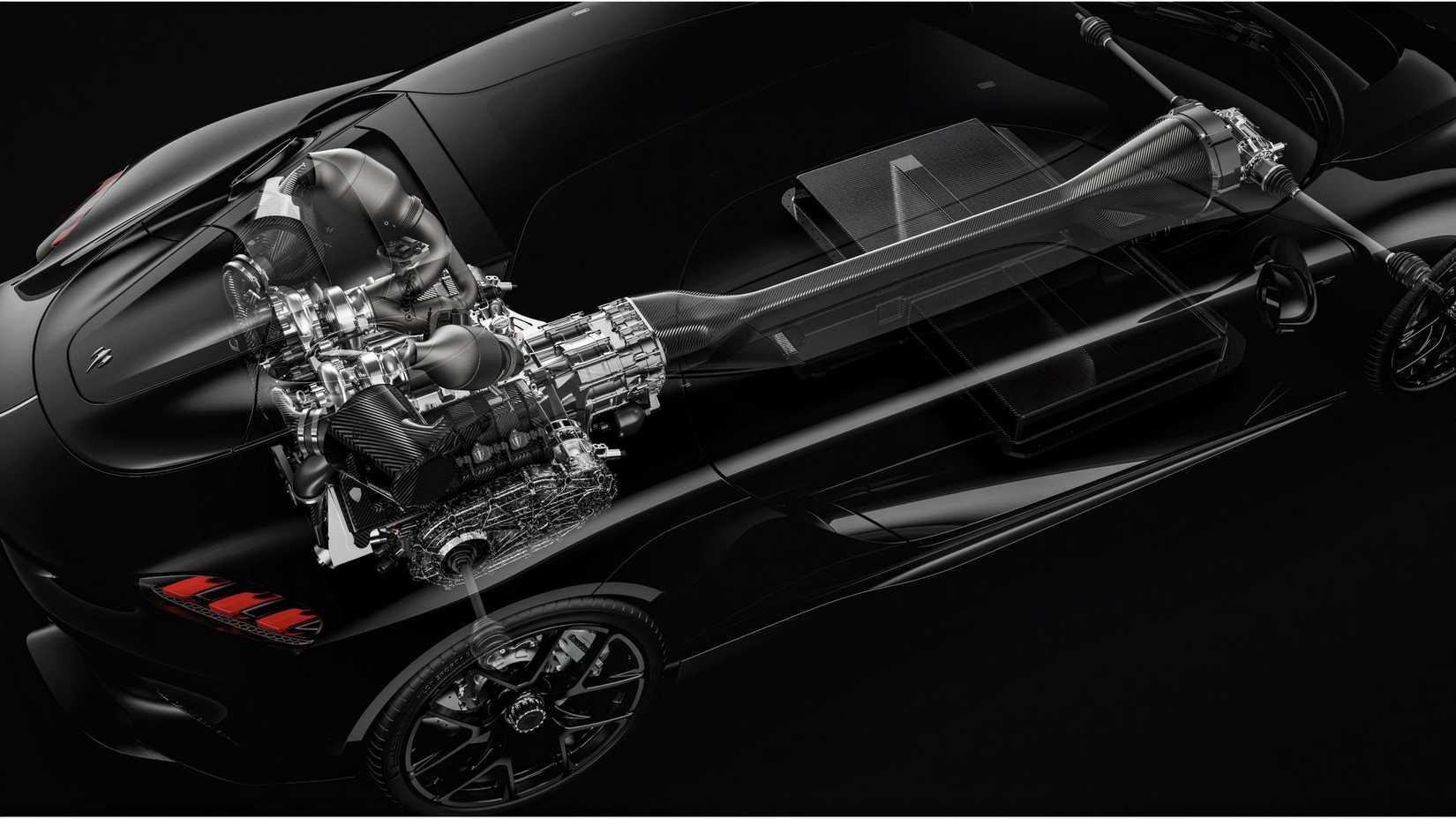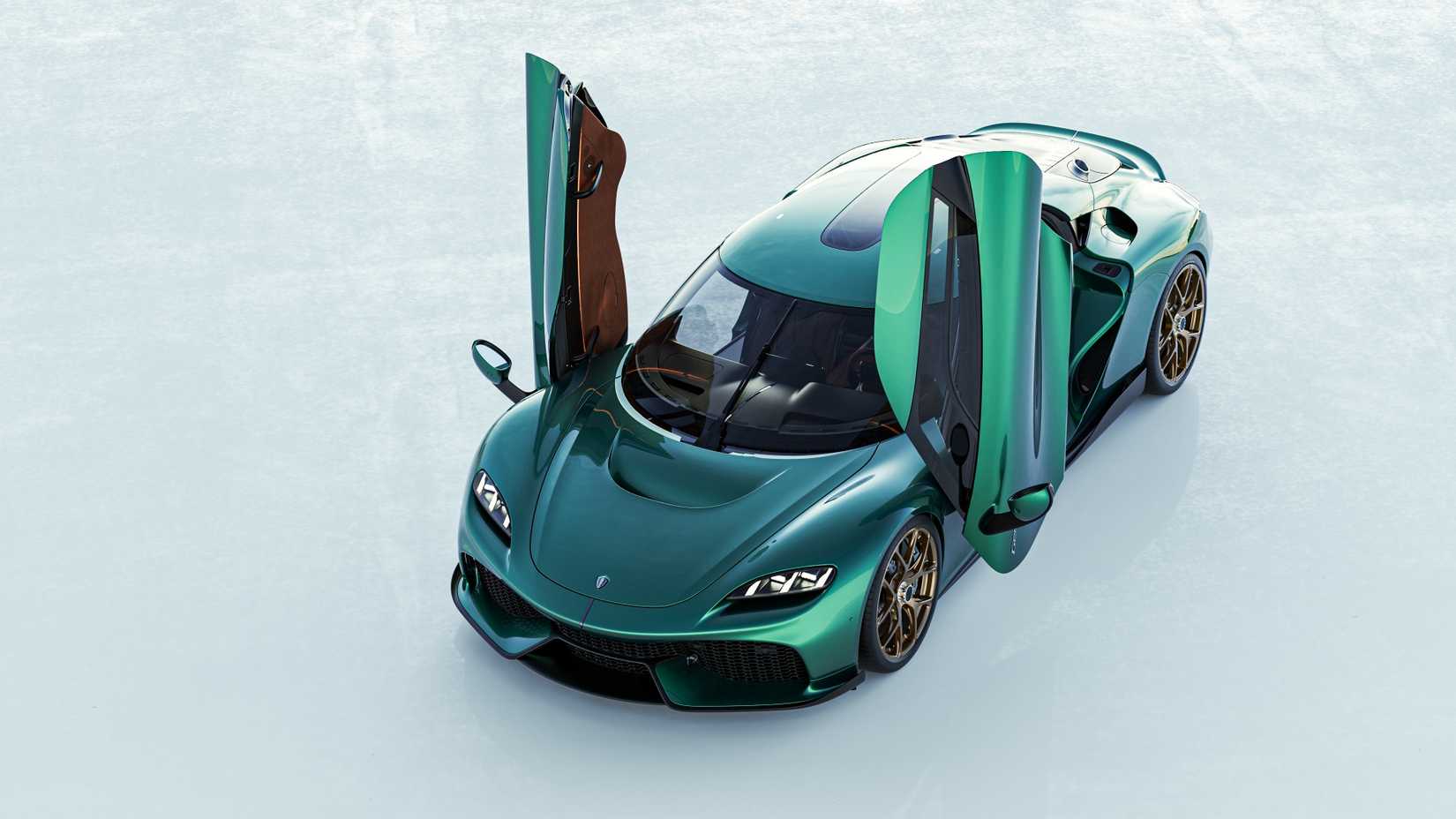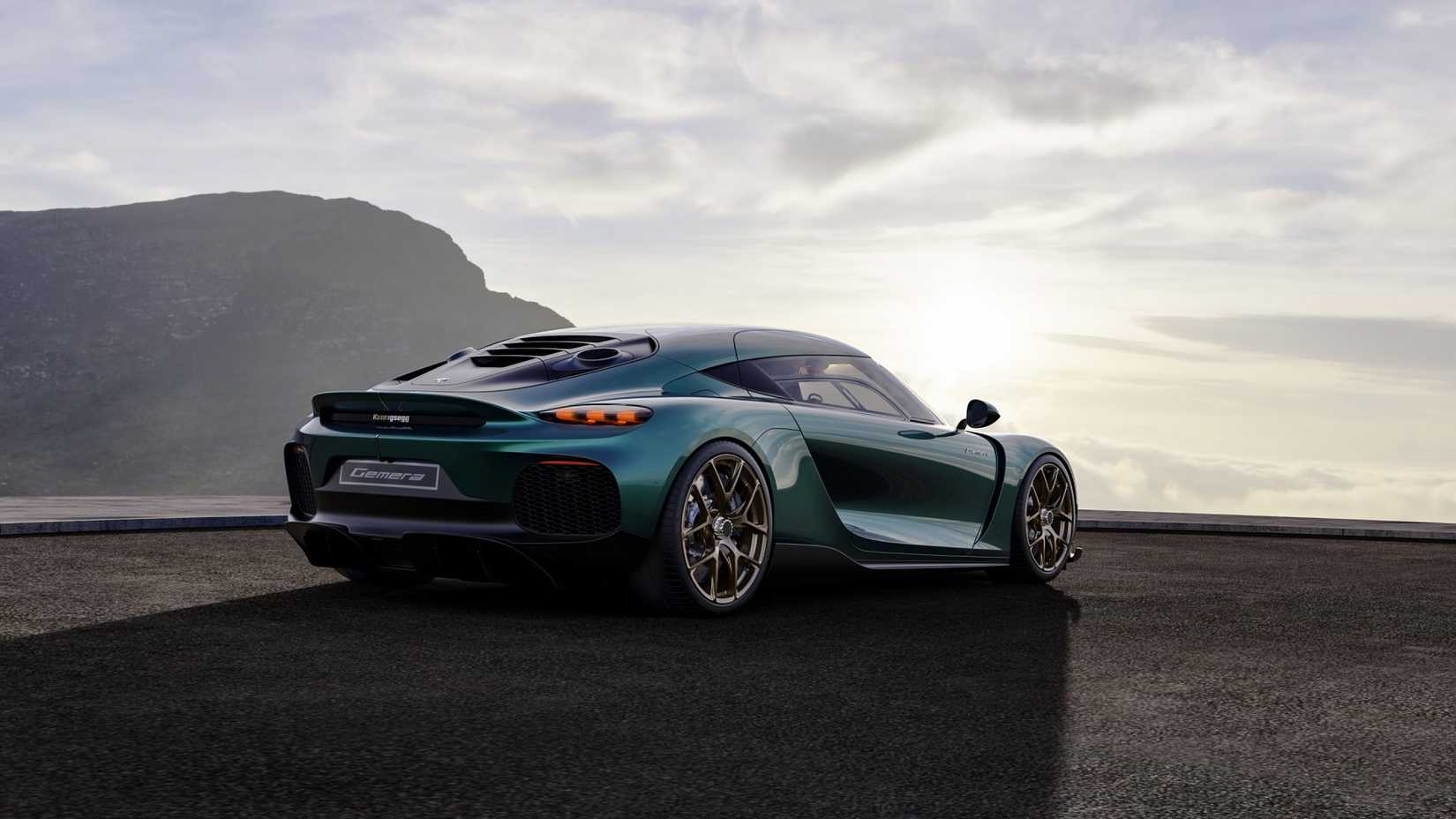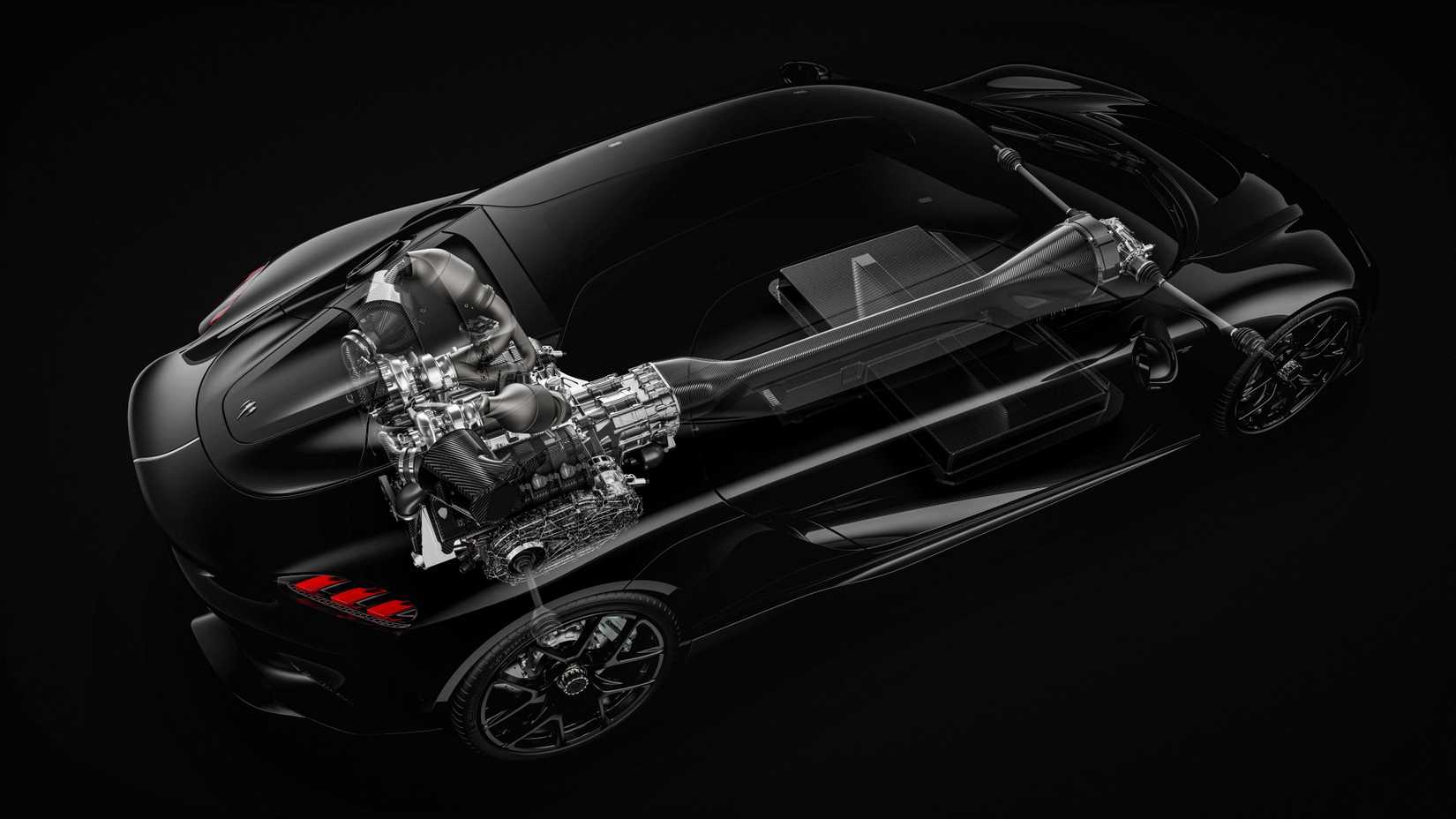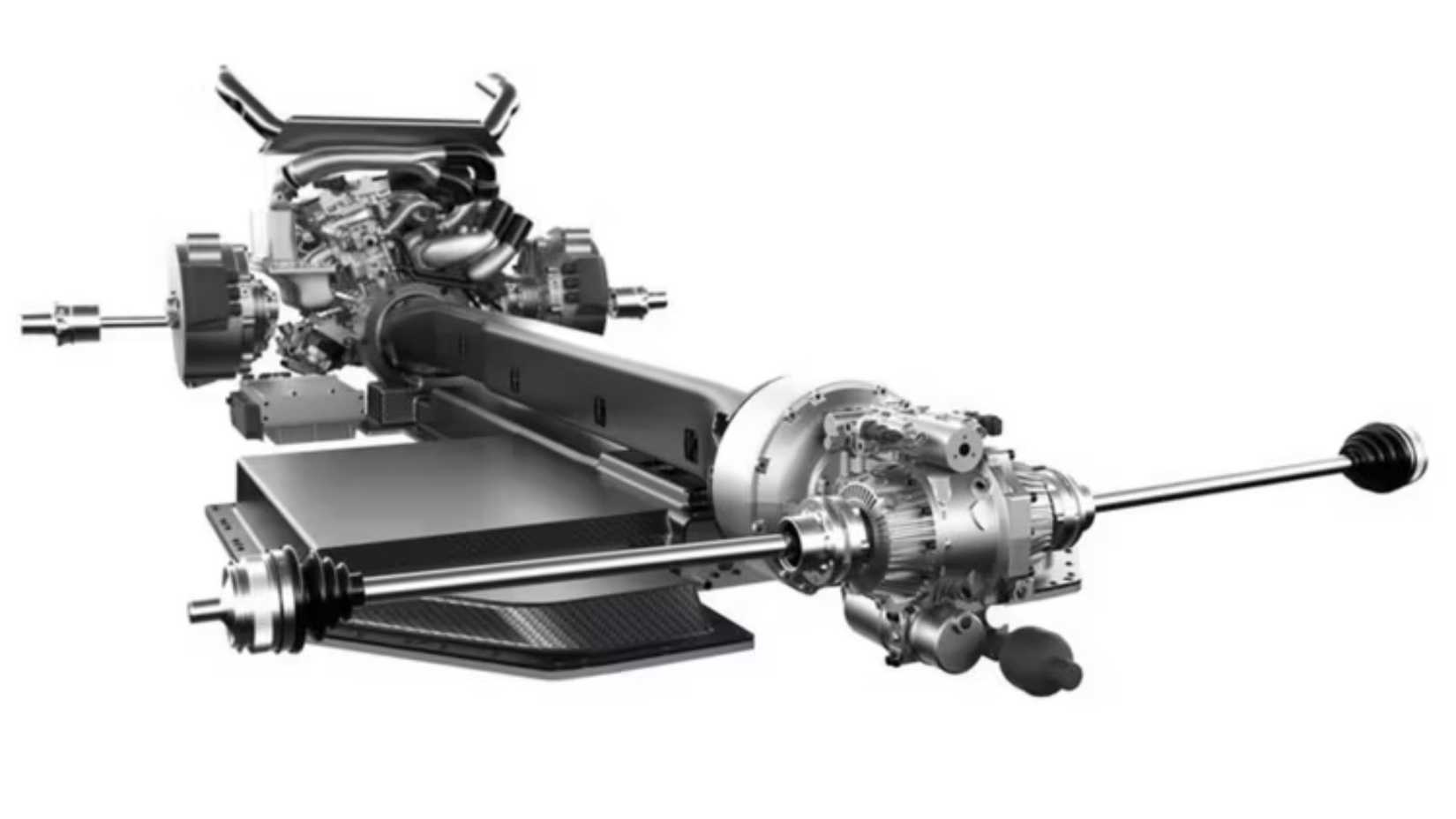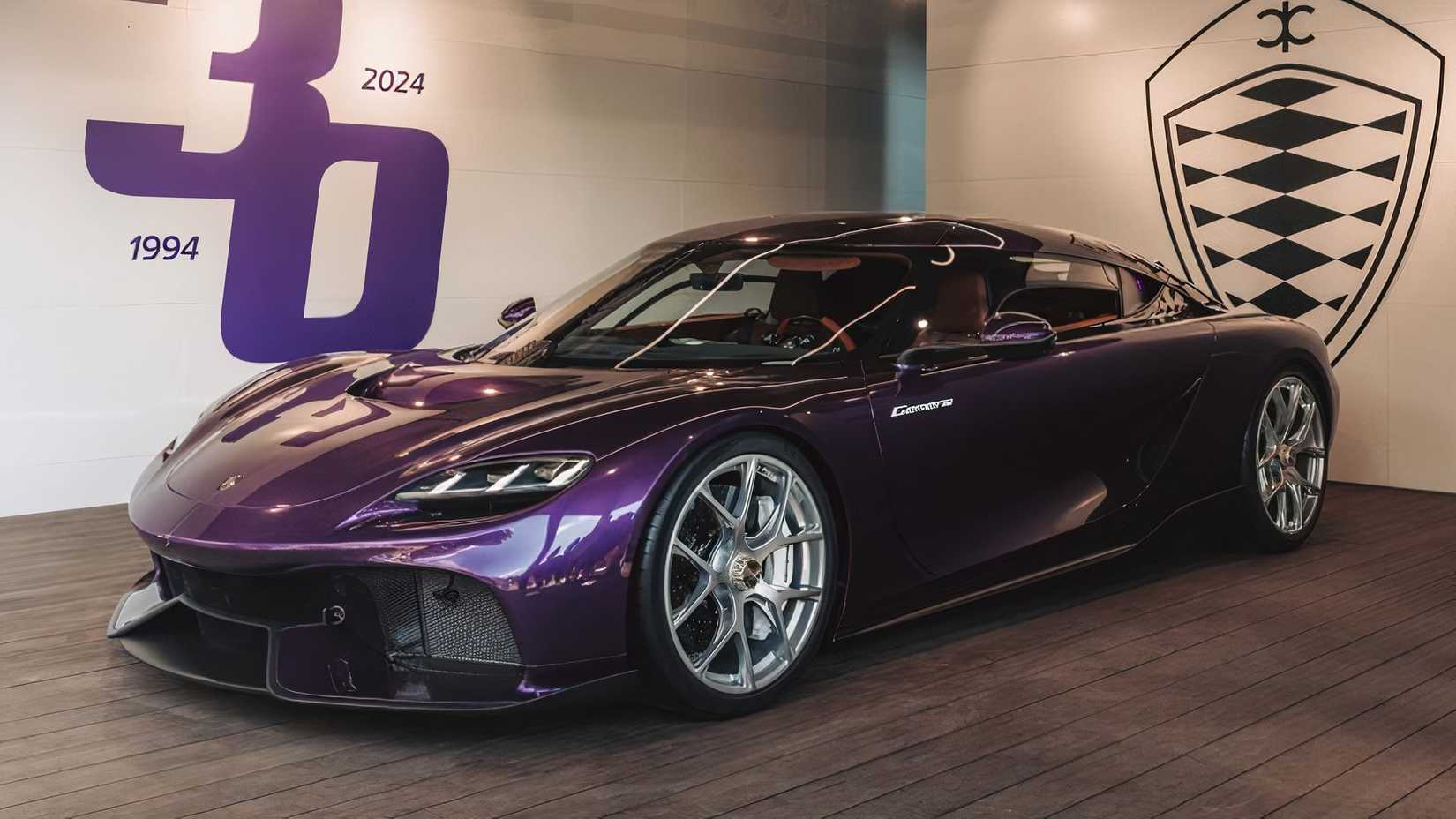Ferrari, Lamborghini, McLaren, and Bugatti are all examples of high-profile supercar manufacturers that have created some of the most intense production vehicles in automotive history. Something else they all have in common is that you’ll rarely find any less than eight cylinders under the hood, with some even employing 16 to get the blistering performance they desire. With the auto industry adopting more and more hybridized power sources in order to get impressive power, it was only natural that the high-end landscape also experiment more with the technology available.
And while there are a few noteworthy hybrid supercars, like the Ferrari SF90 Stradale and McLaren P1, they still stand by the big-engine ethos: there’s no replacement for displacement. This is where the mad scientists over at Koenigsegg flip the script. They’ve not only downsized the displacement and cylinder count, they took hybrid super-power to the extreme. Let’s check it out!
The Koenigsegg Gemera Offers A 3-Cylinder Engine Dubbed The “TFG”
Koenigsegg’s advances in hybrid and electric vehicle technology go far beyond typical innovation—their engineering pushes boundaries even within the supercar realm. While the production Gemera offers the brand’s signature twin-turbocharged V-8 powertrain, an alternative option showcases truly forward-thinking hybrid technology. Originally intended as the sole powerplant for this model, the 2.0-liter three-cylinder engine—dubbed the Tiny Friendly Giant (TFG)—represents a remarkable achievement in compact engine design.
This twin-turbocharged inline-three unit delivers an impressive 592 horsepower independently, earning its place as the world’s most powerful three-cylinder engine that meets road emission standards. Its secret lies in Freevalve technology, which enhances both adaptability and efficiency. Rather than relying on traditional camshafts, the engine employs a camless valve actuation system where solenoids directly control the intake and exhaust valves. This design dramatically expands the possibilities for variable valve timing, duration, and lift—all adjustable on demand through driver controls. According to Koenigsegg, this revolutionary approach reduces driving emissions by 15-20 percent and slashes cold-start emissions by up to 60 percent.
The turbocharging system is equally sophisticated. Each cylinder features two exhaust valves that route gases to one of two turbochargers based on engine load demands. This two-stage setup enables adaptive turbocharging: a single turbo operates during low-RPM conditions, with the second engaging at higher RPMs. The first stage reaches peak efficiency at 1,700 RPM, while the second stage activates as revs and pressure climb, delivering maximum torque across a broad 2,000-7,000 RPM range. The engine redlines at 8,500 RPM with a maximum boost pressure of 29 PSI.
The Dark Matter e-Motor Goes Beyond Modern Capabilities
The original TFG engine debuted in the Gemera concept with three electric motors; one at the crankshaft of the engine and one at either rear wheel. Though when the three-cylinder arrived, as well as the “Hot V-8” option, both powertrains featured a single electric motor, called the Dark Matter e-Motor.
The Dark Matter e-Motor tech was developed by Koenigsegg, and uses a Raxial Flux layout, which is a combination of radial and axial, to produce 800 horsepower on its own, leading to it being recognized (by Koenigsegg) as the world’s most powerful automotive-grade e-motor with 6-phase technology.
Koenigsegg Gemera (TFG) Specs
|
Engine |
Twin-Turbocharged 2.0-Liter 3-Cylinder PHEV w/ Electric Motor |
|
Horsepower |
1,381 Combined |
|
Torque |
1,364 Lb.-Ft. Combined |
|
Transmission |
9-Speed Auto |
|
Driveline |
AWD |
|
0-60 MPH |
1.9 Seconds (pre-production figures) |
|
Top Speed |
249 MPH (pre-production figures) |
|
Layout |
Rear-Engine, 4-Passenger, 2-Door Coupe |
Lightweight Packaging Makes The TFG Even More Versatile
Not only is the TFG extremely powerful (nearly three times more powerful than the second most powerful inline-three), but it’s also very lightweight and small. This shouldn’t come as much of a surprise since it only has three cylinders, but hearing of its immense capabilities, one would automatically think of a large unit. Weighing only 70 kilograms, or about 154 pounds, the TFG is truly a tiny, friendly giant, with its small size allowing gigantic automotive possibilities; the ‘friendly’ aspect of its name likely stems from its efficiency and environmental improvements. The Gemera takes advantage of this small engine by allowing more passenger space, which is enough to seat four, as well as reaping the rewards of passive weight shaving.
Capabilities Beyond Eye-Popping Power
Beyond its remarkable powertrain, the Koenigsegg Gemera introduces several groundbreaking features that complement its mechanical prowess. This model marks two significant firsts for the Swedish manufacturer: it’s their inaugural all-wheel-drive vehicle and their first offering with four-seat capacity. The sophisticated AWD architecture provides exceptional versatility, enabling the Gemera to operate with power distributed to all four wheels simultaneously, or selectively to either the front or rear axles alone. This flexibility expands the vehicle’s capabilities for both customized driving dynamics and optimized efficiency, allowing owners to strategically distribute power based on driving conditions while maintaining sophisticated torque vectoring functionality.
The torque vectoring system adapts its performance characteristics according to the selected driving mode. Patent documentation reveals an array of configurations including front-wheel-drive electric-only operation, rear-wheel-drive combustion mode, rear-wheel-drive with boost, all-wheel-drive, regenerative braking, and additional options. Essentially, the Gemera features an adaptive drivetrain capable of dynamically redistributing not just driving force between axles, but also seamlessly switching between power sources—all determined by driver preferences and real-time performance demands.
Transmission Upgrade Brings More Precision
Initial previews of the Gemera showcased a configuration with three electric motors paired with a single-speed direct-drive transmission. However, the final production specifications revealed a significant departure from this design—the triple-motor setup and direct-drive system were replaced by a singular Dark Matter e-Motor and a nine-speed automatic transmission. This nine-speed unit is Koenigsegg’s proprietary Light Speed Tourbillion Transmission (LSTT), custom-engineered exclusively for the Gemera. The compact multi-clutch gearbox reduces overall mass while enhancing the supercar’s driving engagement.
At the core of the LSTT lies UPOD technology—Ultimate Power On Demand—which serves as the transmission’s intelligence system. UPOD instantaneously identifies and activates the ideal gear ratio to maximize acceleration potential. Working in conjunction with the LSTT’s multi-clutch architecture, the system analyzes both vehicle velocity and engine RPM to determine the optimal gear for peak performance delivery. Perhaps most remarkable is the transmission’s ability to skip intermediate gears when transitioning to the target ratio. The system can drop from seventh gear directly to fourth gear with lightning-fast precision, completely bypassing sixth and fifth gears in the process.
A Lightweight Chassis Is Icing On The High-Performance Cake
The Koenigsegg Gemera’s body is largely composed of carbon fiber, which allows it to be extremely lightweight and durable. The monocoque chassis delivers wheel-to-wheel stiffness, which translates to control and precision when driving at high speeds and cornering. Adjustable, lightweight anti-roll bars on the front and rear, as well as robotized hydraulically-adjustable ride height in the front and rear, give the Gemera more versatility and precision that can be tailored to specific situations. These all provide the world-class powertrain with a solid platform to break the mold of high-performance requirements, while aiding in the legendary status that will inevitably be bestowed upon the record-smashing supercar.
Future Of The Koenigsegg Gemera
The Gemera kicked off production in 2024, with orders said to begin filling in 2025. The Hot V-8 option introduced before production kicked off proved to be the engine that buyers wanted, considering the twin-turbo V-8 is synonymous with Koenigsegg models. Because of this, the Swedish manufacturer decided to delay the TFG’s much-anticipated debut. As of the time of this writing, Koenigsegg has yet to announce whether or not it will ever see production.
Cristian Von Koenigsegg expressed his passion for the TFG, as well as the choice to include the V-8 option when speaking with Top Gear Magazine podcast, stating:
“There were so few left that asked for the three-cylinder [that] we managed to convince almost all of them [to buy the V-8]”
Even after the statement, CVS was adamant that the TFG’s story wasn’t over, and, in fact, just beginning, considering the ongoing testing and refining taking place over at Koenigsegg’s facilities, as well as Cristian stating that there will only be V-8 Gemeras “for now”. Regardless, the Gemera is a huge leap forward not only for the supercar landscape, but the auto landscape as a whole, thanks to the innovative technology that makes up nearly every aspect of the sleek vehicle. Many are calling for the advanced tech to make its way to some mainstream models, though the idea of future collabs has yet to be officially entertained.
